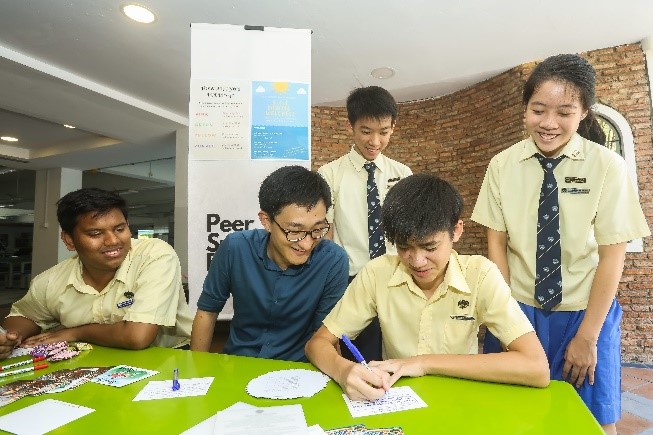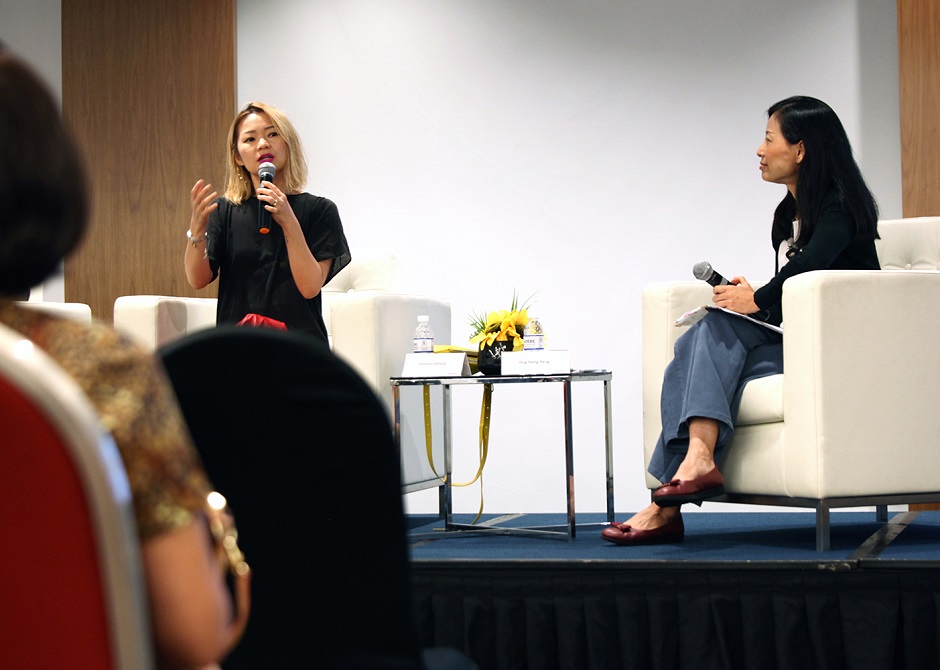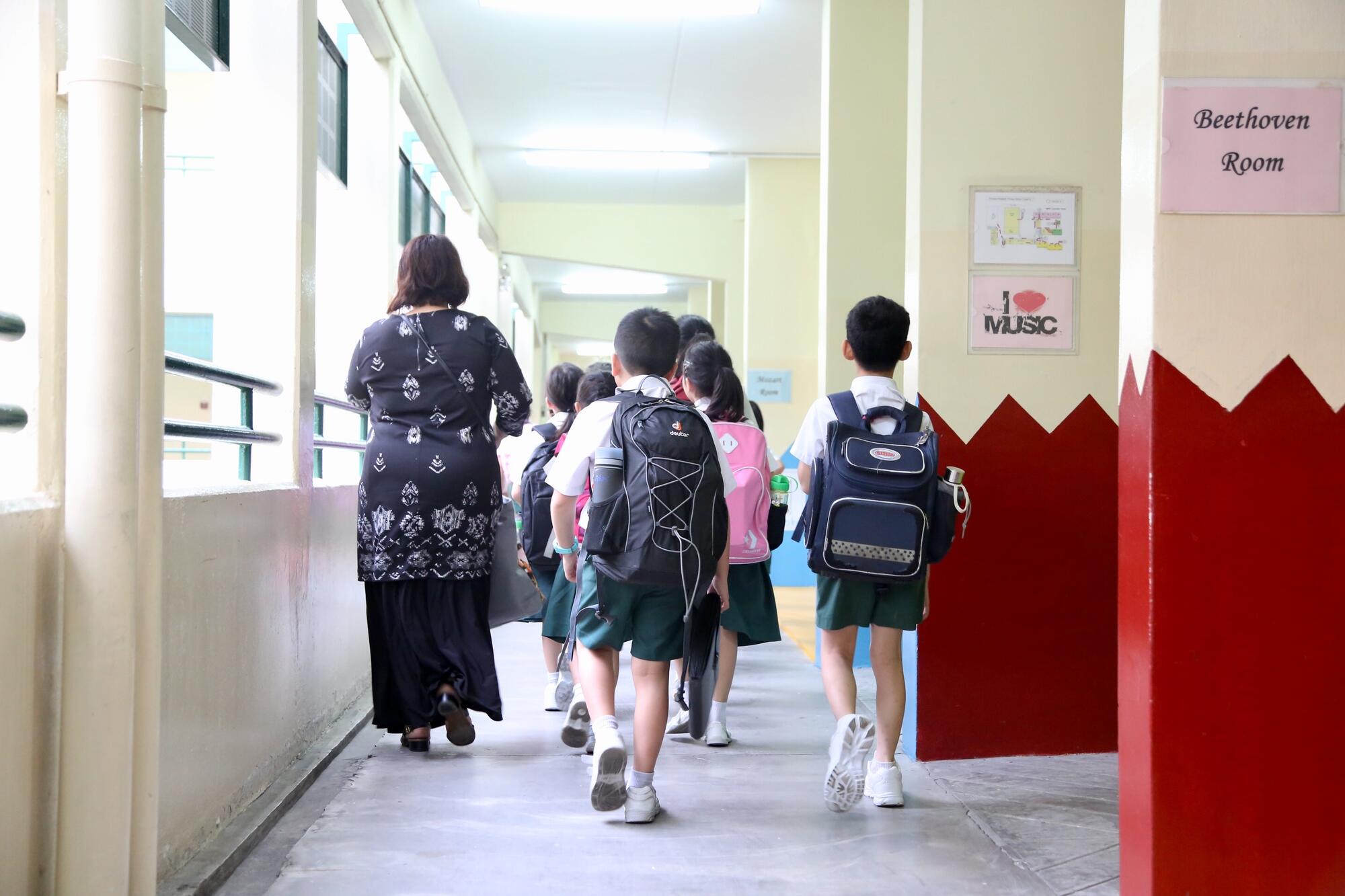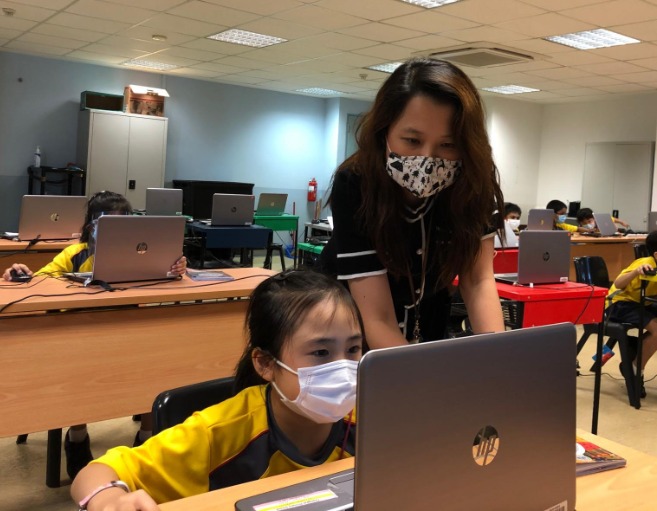Tan Han Rong, Joel, Fairfield Methodist School (Secondary), Outstanding Youth in Education Award 2019 Recipient
My inspiration
I was a teacher, even before I knew I wanted to be one.
As a volunteer officer with the Boys’ Brigade at my alma mater, Fairfield Methodist School (Primary), I came across many students from challenging backgrounds. Some of them were difficult to manage. One had issues with authority. I wanted to understand him, and help him become more disciplined and responsible.
Even after he graduated from the school, I met him every week. I listened to his struggles and aspirations, and gave him moral support. I taught him balloon sculpturing, and roped him in as a helper for the Boys’ Brigade.
One day he said, ‘Mr Tan, I want to impact young lives someday.’ I knew then, that he had turned a corner. Today, he is pursuing a diploma in Early Childhood Education.
That was a life-changing moment for me. I already knew I was interested in helping people. Then I heard Mr Jason Wong, founder of the ‘Dads for Life’ movement, say: ‘In teaching, you go upstream to influence school-family partnerships and mentor young people with missing adult figures.’ That galvanised my decision to be a teacher.
As a teacher, I feel strongly about my students’ mental health and general well-being. Tackling mental health issues can be daunting, and requires a team effort. My colleagues and I worked with MOE to roll out the Peer Support programme in my school, teaching Class Chairpersons how to cope with their classmates who needed help, and to befriend them.
We also formed a group of student leaders to run mental, social, and cyber-wellness campaigns. During the examination season, I guided the Peer Support Leaders in organising ‘Happiness Week’ during recess to help students relieve stress. Students challenged one another in cup stacking, and played with nerf guns. I also often reminded them that whoever they met with might be fighting a battle they knew nothing about, and that they should always be kind.
Building the village
This team effort—this village we need to build—also involves parents. So I reach out and engage parents whenever their children overcome challenges at, say, the school’s adventure camp, or when they fall short of expectations in a Values-in-Action volunteering activity.
I also keep parents updated on their children’s character development, so that we can work together to help students become good citizens who can discern right from wrong. In return, I gathered a group of students to organise a school-wide appreciation campaign, where everyone wrote postcards to show appreciation to their parents. We mailed out all the cards, even to overseas addresses. Teachers got in on the act, too, and were grateful they could do the same for their overseas family members.
I love mentoring, and regard it as a privilege. I am heartened when I see students take up this mantle too. I have known John* for eight years, and have seen him grow through Boys’ Brigade in Fairfield Primary, and to head the Peer Support Board in Fairfield Secondary. One day, John sacrificed his recess listening to a schoolmate in distress and said, ‘He felt much better after pouring out everything to me. He is now managing well and that makes me happy.’ I am proud of John.
In my mission to create a safe zone for my students to learn and grow, I try to open my students’ eyes to inequality in our society. In one Social Studies lesson, I carried out the ‘Privilege Line’ social experiment, where students take steps forward and back in response to statements that relate to race, privilege, and gender. Through the activity, they learned to better empathise with others.
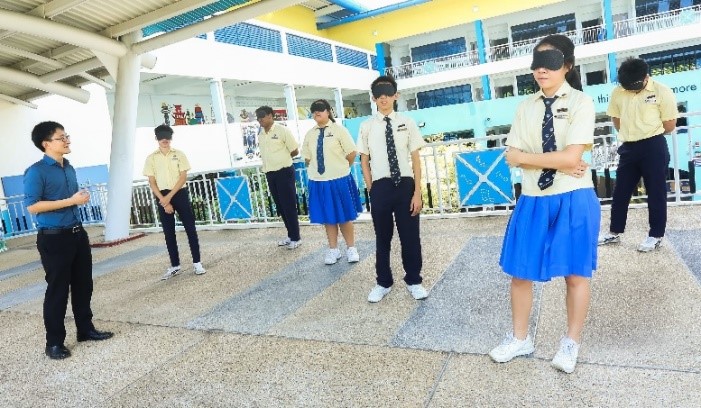
Students learn about empathy through walking the Privilege Line.
A sense of belonging
I want all my students to feel that they belong in the school community. I worked with the archives committee to make the school’s history more relatable to students.
One way was to feature some of our long-serving staff in our Archives Room. One of the canteen stall operators, Mdm Ngi, has been with us for 45 years. When I realised this, I organised a surprise party for her during our school carnival. Our alumni brought their school-going children to meet her and show gratitude for her love and sacrifice. Stories like hers help my students find their place in their school’s history, and learn to be thankful for the pioneers’ contributions. School is family, and family means no one is left behind or forgotten.
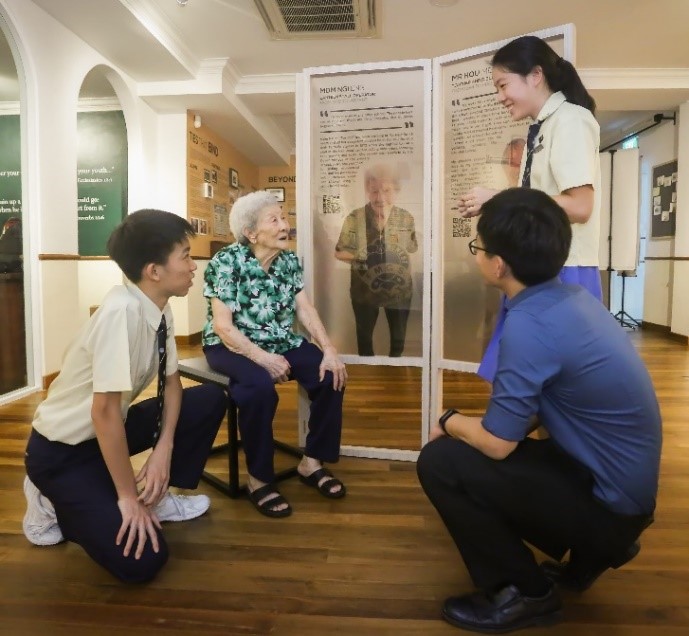
Stories like Mdm Ngi’s help students find their place in the school’s history.
As I continue to interact with students, I find that many may struggle with low self-esteem, or addictions. My heart goes out to them. I do not want them to feel alone. I want them to know that there is a safe space and that they have a kampung (village) of people to help fight alongside them.
*Name has been changed to protect the identity of the student.



